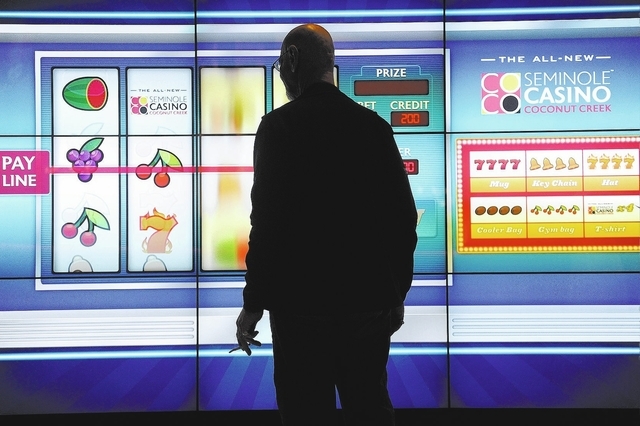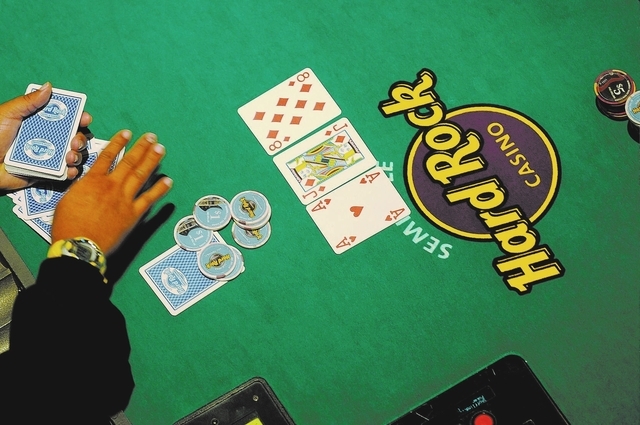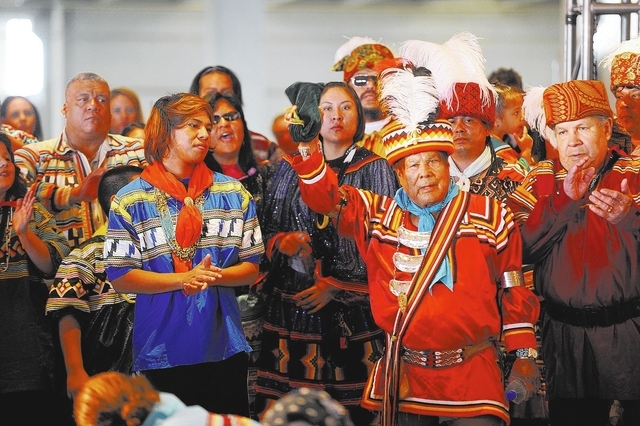Inside Gaming: Sunshine State brings shrugs from Las Vegas casino interests



Florida is back in play, but no one really seems to care.
Last month, legislation was unveiled that could bring Las Vegas-style casinos to South Florida — one each for Miami-Dade and Broward counties. Local voters in both communities would have to approve the resorts through referendums.
The legislation would allow racetracks outside current South Florida racinos to add slot machines and would create a five-member Gaming Control Board.
Most believe the ideas will die a quick death.
The proposals are Florida’s first tangible casino expansion effort since 2012. That legislation, which called for destination resorts in Miami and Fort Lauderdale, failed miserably. Most of the major Nevada gaming companies wasted millions of dollars on lobbying and public relations in hopes of swaying support for Las Vegas-style casinos.
The Seminole Indian Tribe and Walt Disney Co. made their opposition known, publicly and financially, and doomed the legislation. The powerful tribe owns seven of the state’s eight Indian casinos. Disney rules central Florida’s family-friendly theme park and convention market with an iron fist.
There is no reason to think anything has changed.
Wall Street ignored the legislation with a sort of “why bother” attitude.
“It’s not looking likely,” one analyst surmised in an email. “Everyone — hotels, restaurants, Disney, the Seminoles, racinos — are making money. No need to rock the boat.”
Florida’s Indian casinos are in the south, except for the Seminoles’ Hard Rock Tampa. Six slot machine-only casinos are attached to racetracks and a Miami jai alai facility. They are also in Miami-Dade and Broward.
Florida is considered one of the more lucrative untapped casino jurisdictions in the United States. It has 19.3 million residents and attracts nearly 90 million annual visitors.
Tribal casinos, led by the Seminoles, produced $2.16 billion in gaming revenue in 2011, the most recent Indian Gaming Industry Report by Casino City shows. Slot machine casinos collected $427.9 million in gaming revenue in 2013.
Macquarie Securities gaming analyst Chad Beynon has warned investors of sour times in the regional gaming markets since last year. However, Florida was the only state to show a gaming revenue increase in January.
“There is a customer demand that could easily support additional capacity and better gaming facilities,” Union Gaming Group Managing Director Bill Lerner said.
The challenge is getting past the Seminoles and Disney. The tribe, which has a $230 million-a-year compact with the state, has traditionally fought competition. The theme park operator adamantly opposes gambling and wants to keep integrated resorts, which could lure away convention business, out of Miami.
“The Seminoles have the ability to write significant (campaign contribution) checks and Disney won’t roll over,” Lerner said. “Ultimately, the number of licenses and the scope of gaming will decide the issue.”
Two years ago, Las Vegas Sands Corp., Wynn Resorts Ltd., Caesars Entertainment Corp. and MGM Resorts International were all linked to casino opportunities in Miami and Fort Lauderdale.
Malaysia-based Genting Group had the largest stake in the 2012 process after it spent more than $400 million on 30 acres along Miami’s Biscayne Bay waterfront for its planned $3.8 billion Resorts World development.
Spectrum Gaming of New Jersey studied Florida for Genting and found Resorts World had the potential to generate annual gaming revenue that would exceed all of Las Vegas.
But plans for the 5,200-room hotel-casino are gathering dust.
Florida lawmakers see a healthy gaming tax potential. The current House speaker, however, says the bills won’t pass without initial support from the governor.
Casino expansion could also nullify the Seminoles’ compact with the state. A new agreement — most likely with terms favorable to the tribe — would have to be negotiated.
Gaming expansion hasn’t won much support in the past from Florida residents, who rejected casino referendums in 1978, 1986 and 1994.
There is also a question of interest from Nevada’s casino industry, which saw no return from its 2012 lobbying investment.
Las Vegas Sands, Wynn Resorts, MGM Resorts and Caesars Entertainment all have eyes on international casino developments, such as Japan and other Asian destinations. MGM Resorts and Wynn are favored to win separate casino licenses in Massachusetts. MGM Resorts is also proceeding with an $800 million development at National Harbor, Md.
In other words, unless the Florida process goes beyond talk, the biggest companies will watch from afar.
Genting, which still owns its Biscayne Bay location, remains committed to Florida. The company and Miami’s Gulfstream Park Racetrack reportedly want legislative approval to build a 2,000-slot machine casino and off-track betting facility on the Resorts World site.
The only other casino operator with an interest in Florida is Boyd Gaming Corp. The company signed an agreement in 2012 with owners of the National Hockey League’s Florida Panthers to build a casino adjacent to the team’s arena in Broward County. The deal hinges on the state approving casinos.
Meanwhile, significant competition to Florida is rising 290 miles to the east, in The Bahamas. The $3.5 billion Baha Mar Casino &Hotel opens in December with plans to rope in Latin American and U.S. customers that a casino in Miami would hope to attract.
Casino expansion in Florida again faces long odds.
Howard Stutz’s Inside Gaming column appears Sundays. He can be reached at hstutz@reviewjournal.com or 702-477-3871. Follow @howardstutz on Twitter.












